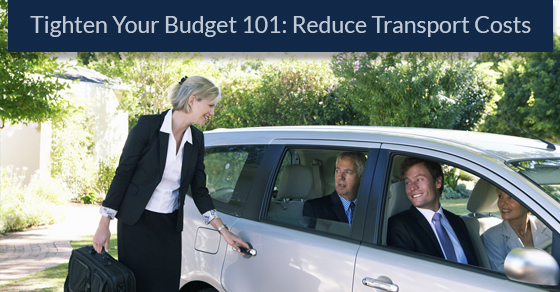Emergencies are unpredictable; they aren’t planned, but they can be planned for. Emergencies usually demand urgency, and this can include paying for unexpected expenses. For this reason, it’s always a smart financial decision to put aside monthly savings towards an emergency fund. We may take all measures to avoid an emergency, but the best planning is to stay prepared. Emergencies don’t usually allow you much time to readjust your budget and can be financially demanding in a short period. If you continue to put aside money towards an emergency fund steadily, you can save yourself from any panic if you are ever required to pay a large sum of money in a short period. Emergencies can include any number of situations, including your car breaking down, time off from work, or urgent veterinary procedures, or a pandemic, to name a few. It’s important to differentiate unexpected expenses from those that occur occasionally and should be considered their own category when budgeting. If you haven’t already set up an emergency fund, we’ll walk you through some of the benefits of doing so.
-
Keep out of debt
- When you are faced with an emergency that requires a significant amount of money, such as for vet treatments or car repairs, they usually require fast action and immediate payment. If you don’t already have an emergency fund set up for these kinds of large and unexpected expenses, you may not have enough money available in your bank account at the time. In these situations, you may be required to take out a loan, and trying to pay off loans can put you into debt, especially with the high-interest rates. Some loans can be particularly costly, such as payday loans or cash advances on credit cards, which are usually associated with very high-interest rates. Anticipating and preparing for emergencies beforehand by contributing to an emergency fund can help you avoid taking loans and going into debt.
-
Remain in control of an emergency
- Emergencies can vary widely. However, one common factor between most emergencies is the need for some sort of payment, whether big or small right away. In order to stay in control of an emergency, having a sufficient amount of money at your disposal is the best way to remain prepared and in control. Don’t let the financial demands of one emergency create more problems for you.
-
Put your mind at ease
- For many individuals, not knowing what’s going to happen next is both exciting and part of the spice of life. But for many others, being prepared for the future with an emergency fund is the best way to keep their mind at ease and remain relaxed knowing they can financially handle whatever may come their way.
How do I get started with my emergency fund?
If the concept of an emergency fund is new to you, but something you are definitely ready to set up, here are some tips to help you begin contributing to it:
-
Start small, but start somewhere
- Saving is no easy task, especially if you’ve got bills or a mortgage to pay and a family to support. Finding any money to put away can be a difficult task, so it’s okay to start saving a small amount. Be realistic when creating your monthly budget and allot whatever you can towards your emergency fund. Even if you’re only setting aside a little at a time, it’s better than nothing, so there’s no need to worry if it takes you months or even years to reach your goal for your emergency savings.
- One of the best ways to add more to your emergency fund is to eliminate or reduce one of your monthly expenses. The expense you choose to eliminate should be one you may want, but don’t necessarily need. The money you save from this expense can be put towards growing your emergency fund. There are several little ways that you can save a lot of money, such as by making your lunches at home, using public transit, etc.
- However long it may take you, try to aim to save at least 3 to 6 months of income. Save gradually and consistently, and you will get there. Remember if you can save $50 per pay period and you get paid biweekly, you’ll have $1300 saved up in a year.
-
Open a savings account
- Once you’ve committed to creating an emergency fund, you’ll need an account to save all your money in. There are certain features you should look for in the savings account you open for your emergency fund. The purpose of an emergency fund is to have money at your disposal when an unexpected expense comes up, so your account should:
- Be easy to access
- Be separate from the account you use for daily transactions
- Offer the ability to earn interest on the money you save
- Allow transactions without any penalty fees or transaction fees
- Additionally, help make things easier for yourself by automating your savings, so that a certain amount of money at a set frequency will be transferred from your regular account to your savings account(e.g. $50 per pay period). With automatic deposits, you can forget about reminders and calendars while still saving in the background.
- Once you’ve committed to creating an emergency fund, you’ll need an account to save all your money in. There are certain features you should look for in the savings account you open for your emergency fund. The purpose of an emergency fund is to have money at your disposal when an unexpected expense comes up, so your account should:
-
Make saving a habit, not a chore
- Saving doesn’t have to be a forced process, especially if you try to work it into your everyday life. You don’t always have to set aside large sums of money because, in reality, every little bit helps and it’s the small steps that lead to big results. This means that even loose change that you collect over time in a container can add up. Don’t be afraid to use whatever tools and reminders you may need to keep you saving regularly so that, over time, saving becomes a habit and not a demand or chore.
Managing finances and saving money can sometimes be difficult with all the other expenses demanding our attention. Despite what your financial situation may be, putting money aside towards an emergency fund is always the right idea, and the amount you choose or are able to set aside should be based on your personal circumstances. Whatever opportunities you have to put away some extra money should be seized, so if more of your income is available to you, then add that money to your savings. Redirecting money towards your savings is a great way to help your fund grow quickly and reach an amount you’re content with. Make sure you continuously review your financial goals and readjust your budget as needed. Unfortunately, your financial status isn’t always going to remain steady and can be unpredictable, so it’s important to always have money at your disposal to help you navigate through unexpected circumstances. If you feel that you could use some financial advice to help you get on track and stay there, let our team at Kevin Thatcher and Associates give you the guidance you need. Call Kevin Thatcher and Associates today at 1-888-329-5198 to book your free consultation or visit our website here to learn more about us.


